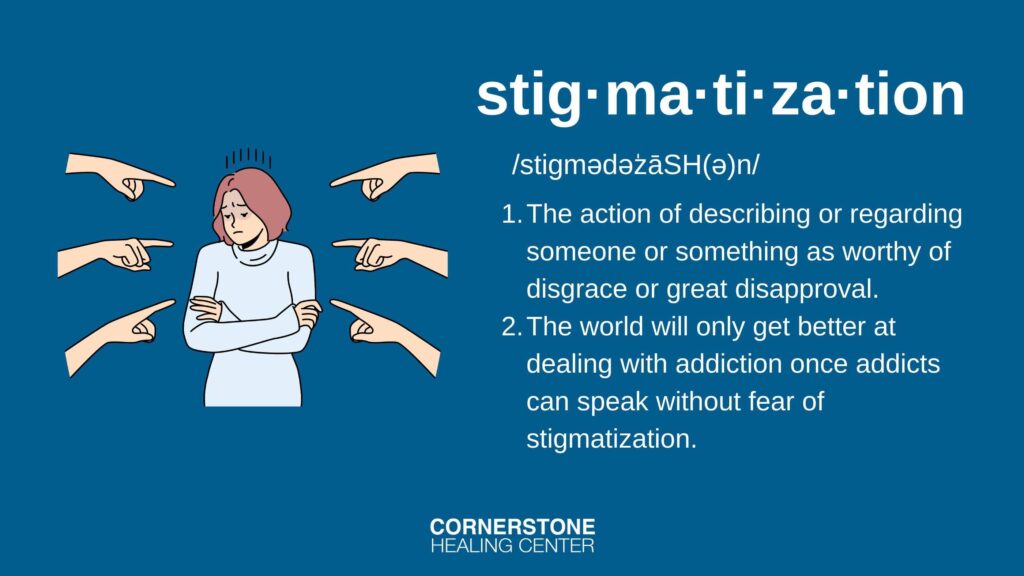Driving under the influence (DUI) is a severe offense that puts drivers, passengers, and bystanders in danger.
Despite the strict penalties and warnings, some people continue to engage in this risky behavior and end up with multiple DUIs.
In this article, we explore the lifelong impact of multiple DUIs, and we will take a closer look at how it affects an individual’s legal status, personal relationships, career prospects, and mental health.
Statistics and Facts
Recidivism Rates Among DUI Offenders:
Recidivism, the pattern where individuals previously convicted of a DUI frequently reoffend, poses a significant challenge in the realm of DUI offenses.
Statistics indicate that individuals with prior DUI convictions are more likely to reoffend than those without such a record.
According to a study carried out by the National Highway Traffic Safety Administration (NHTSA), around one-third of offenders will be rearrested for a subsequent DUI within two years of a DUI arrest.1
In the long run, the recidivism rates could be even higher, with some estimates suggesting that individuals with a previous DUI conviction could have a recidivism rate as high as 50% within 10 years.
Comparative Analysis of First-Time Offenders vs. Repeat Offenders:
First-time DUI offenders are usually required to attend education and intervention programs to prevent them from repeating the offense.
These programs have been found to be somewhat effective, with lower recidivism rates compared to those who did not undergo any intervention.
However, repeat offenders present a bigger challenge, as studies have shown that they often have more severe alcohol problems, higher rates of psychiatric comorbidities, and more significant personal, professional, and legal issues.
Repeat offenders are also at a higher risk of being involved in fatal crashes.
According to the NHTSA, drivers with a BAC of 0.08% or higher involved in fatal crashes were six times more likely to have prior convictions for DUI than drivers with no alcohol in their system.2
These statistics paint a concerning picture of the difficulties in preventing DUI recidivism and the increased risks posed by those who repeatedly drive under the influence.
Combating these issues involves a combination of stricter legal penalties, targeted interventions for alcohol and substance abuse, and broader community-based initiatives to reduce impaired driving.

Legal Consequences of Multiple DUIs
Enhanced Penalties:
When someone is repeatedly found guilty of driving under the influence (DUI), the legal system imposes harsher penalties to deter them from committing the crime again and to protect the public.
These penalties include longer prison sentences, which not only serve as punishment but also prevent offenders from causing further harm while under the influence.
The fines for repeated DUI offenses are also significantly higher, which can be financially devastating.
Additionally, probation periods are extended, and individuals must remain under legal supervision longer, limiting their freedom.
They must regularly check in with a probation officer and follow strict court-ordered guidelines.
Failure to comply with any of these terms can result in immediate incarceration, adding more pressure to the already challenging process of rehabilitation.
License Suspension or Revocation:
Multiple DUI convictions often lead to the suspension or revocation of a driver’s license.
As the severity and number of offenses increase, so does the likelihood of losing driving privileges.
Losing one’s driver’s license is not only a legal penalty but also a significant obstacle to daily life, as it can affect the ability to commute to work, perform essential household duties, or maintain social connections.
Reinstating a driver’s license can be a challenging process that involves navigating a complex web of bureaucratic procedures, such as attending hearings, completing DUI education programs, and sometimes undergoing evaluation for substance abuse problems.
This process can be time-consuming and costly, with no guarantee of a favorable outcome, leaving individuals without a valid license for extended periods.
Mandatory Installation of Ignition Interlock Devices (IIDs):
It is common for those convicted of multiple DUIs to be required to install ignition interlock devices (IIDs).
These devices require a driver to take a breathalyzer test before starting the vehicle.
If any trace of alcohol is detected, the vehicle remains immobilized.
However, beyond the inconvenience of having to take the test, IIDs also come with a financial burden.
The installation fees, monthly rental costs, and regular maintenance can add up, significantly straining personal finances.
Moreover, these devices can be seen as a stigma, a public indication of past mistakes.
They can also complicate routine activities such as lending a car to a family member since the vehicle remains unusable by anyone who still needs to pass the breathalyzer test.
Compulsory Rehabilitation or Counseling Programs:
Individuals who are found guilty of multiple DUIs are often required to participate in compulsory rehabilitation or counseling programs as part of their sentence.
These programs are designed to address any underlying substance abuse issues that may have contributed to their recurring offenses.
The length and intensity of these programs can vary, from outpatient sessions to more immersive inpatient rehabilitation.
It is crucial to comply with these programs; failure to attend or complete them can result in severe legal repercussions, such as fines, re-incarceration, or extended probation.
Additionally, non-compliance may be viewed as a lack of remorse or willingness to reform, which could negatively impact future legal considerations.
By mandating these rehabilitation programs, the legal system aims to penalize offenders and provide them with opportunities for recovery.

Financial Implications
Skyrocketing Insurance Premiums:
Getting convicted of DUI can lead to a significant increase in insurance premiums.
In case of multiple offenses, the offender may be labeled as a high-risk driver, causing a four-fold increase in the insurance rates.
These elevated rates can persist for several years, reflecting the higher risk the driver poses.
After multiple DUI offenses, insurers may deem the risk too great and choose to drop coverage altogether.
Finding insurance after being dropped can be difficult and expensive as the pool of insurers shrinks.
Legal Fees and Court Costs:
Defending oneself from DUI charges can be a challenging task, often requiring the assistance of a DUI attorney who specializes in handling such cases.
As the number of offenses increases, so does the complexity and severity of the case, necessitating a stronger defense.
This, in turn, may lead to higher legal fees.
Court costs also increase with repeated offenses, including fines, court fees, and the cost of mandated programs or devices like Ignition Interlock Devices (IIDs).
Loss of Employment Opportunities:
Multiple DUIs can significantly affect an individual’s ability to find employment.
Employers may hesitate to hire someone with a criminal record, particularly if it implies a recurring pattern of irresponsible conduct.
Jobs that involve driving are usually not an option for people who have multiple DUIs.
For certain professions, such as those in law, medicine, or jobs requiring a security clearance, a DUI can be a career-ending event.
Multiple offenses can lead to revocation of professional licenses or loss of security clearance, which can mean the end of one’s current career trajectory and a bar from certain future opportunities.
In addition to the direct costs, there are indirect financial implications, such as the loss of earning potential and the stigma associated with multiple DUIs, which can also influence social and economic status.
These financial burdens underscore the importance of the choices made before getting behind the wheel and the profound, long-lasting impact of those decisions.

Social and Personal Impacts
Stigmatization and Reputation Damage:
DUI offenses come with a significant social stigma, especially when it comes to repeat offenders.
Society tends to view those with multiple DUI convictions negatively, which can lead to social exclusion and negative professional consequences.
Such condemnation can put a strain on personal relationships, as friends and family struggle to come to terms with the individual’s actions, often resulting in a loss of trust and respect.
The overall effect can be a profound sense of isolation and a damaged reputation that can be challenging to restore.
Mental Health and Emotional Toll:
Multiple DUI offenses often indicate deeper issues that can take a significant mental and emotional toll on the offender.
Feelings of guilt, shame, and depression are common among individuals who struggle with the consequences of their actions, particularly when those actions contradict their self-image and moral values.
This emotional burden can be compounded by legal battles and financial troubles, resulting in a cycle of negative self-worth and self-perception that may be difficult to break without adequate support and counseling.
Family Dynamics:
The consequences of multiple DUIs can have a profound impact on the dynamics of a family.
Family members, including children, parents, and spouses, may experience a range of negative emotions such as fear, anxiety, embarrassment, and anger.
The stability of the family unit can be threatened, leading to possible divorce, custody battles, or estrangement.
For children, in particular, a parent’s repeated DUIs can set a poor example and create an environment of uncertainty and insecurity.
The emotional well-being of each family member and the overall cohesion of the family can be severely affected.

Health Risks and Consequences
Chronic Health Issues Associated with Repeated Substance Abuse:
Regular and excessive alcohol use can result in several chronic health problems that may continue even after the cessation of drinking.
Prolonged abuse can increase the chances of developing liver diseases such as cirrhosis and fatty liver, as well as increase the risk of heart disease, stroke, and high blood pressure.3
Additionally, it can cause digestive issues and lead to neurological complications that can severely affect cognitive function, memory, and mood, thereby complicating daily activities.
Risk of Accidents Leading to Injury or Fatality:
Driving while under the influence of alcohol significantly increases the chances of being involved in a road accident.
These accidents can cause severe injuries or even fatalities, not only to the driver but also to passengers, other drivers, and pedestrians.
Injuries can range from minor bruises and fractures to more severe ones, such as brain damage or paralysis.
The tragedy of such accidents is that they can be prevented if drivers exercise good judgment and do not drink and drive, which impairs their reaction times.
Potential for Addiction and Related Health Crises:
Repeated alcohol abuse can eventually lead to addiction, which is a medical condition characterized by compulsive alcohol use despite negative consequences.4
This addiction can cause various health complications, including acute alcohol poisoning, withdrawal symptoms, and the emergence of co-occurring mental health disorders.
The effects of addiction can be extensive, leading to significant harm to multiple organ systems and overall health and well-being.
The health consequences of repeated DUIs highlight the urgent need for interventions that address not only the legal and personal aspects of DUI offenses but also the underlying substance abuse problems that contribute to them.
The Path to Recovery and Redemption
Accepting Responsibility:
A crucial initial step towards recovery for individuals who have multiple DUIs is accepting responsibility.
Recognizing the issue and taking ownership of the consequences of their actions can be a turning point.
This acceptance often encourages offenders to seek change by acknowledging the harm they have caused to themselves, their loved ones, and society.
It can catalyze a commitment to making permanent life changes.
Seeking Professional Help:
Professional help can play a crucial role in supporting the long-term recovery of repeat DUI offenders.
Counseling and therapy can be particularly helpful in addressing underlying issues such as substance abuse and mental health disorders.
Support groups like Alcoholics Anonymous (AA) or other community-based programs provide a network of individuals who share similar experiences, offering both understanding and accountability.
These resources are especially valuable, as they offer structured programs that are specifically designed to help repeat offenders navigate the complex process of recovery.
Restorative and Preventative Measures:
DUI education programs and intervention strategies play a significant role in restorative and preventative measures.
Education programs have the goal of educating offenders about the risks and consequences of impaired driving.
These programs often use evidence-based strategies to promote behavioral changes.
Personal transformation stories can serve as powerful and inspiring accounts of rehabilitation, offering hope and guidance to those who may be struggling with the cycle of DUI offenses.
These narratives not only motivate offenders but also can be used in preventative measures, influencing others to avoid similar pitfalls.
Embracing the Journey Towards Recovery
When someone is dealing with the aftermath of multiple DUIs, they are faced with an important moment to reflect on their actions and make positive changes.
The road ahead is undoubtedly difficult, as the consequences can have lasting effects, but it is possible to recover and move forward.
If you or a loved one is struggling with alcohol addiction, please reach out to us at Cornerstone Healing Center in Scottdale, AZ.
We offer comprehensive addiction treatment programs to guide you toward lasting recovery and well-being.
Additionally, if you are dealing with the ramifications of a DUI, Cornerstone offers essential DUI services to navigate legal complexities.
With DMV and MVD-approved online DUI Classes, Alcohol Screenings, and DUI Screening Assessments, our services are conveniently accessible online, allowing for flexibility and confidentiality as you work towards resolving your DUI and reclaiming control.
Remember: Every step towards recovery takes us further away from past mistakes and towards a future of transformation and hope!





